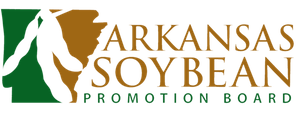Soybean Breeding and Genetics Program
Tina Hart, research technician with the University of Arkansas, explains the development process of new varieties through the soybean breeding and genetics program.
At the nursery in Fayetteville, parent material is assessed and cross combinations are created in the crossing block. In the fall, the successful crosses are harvested, which lines are closely watched for four to five years to see if the criteria is being met.
“Everything that we do is focused around keeping things pure.”
Once lines are chosen to advance to (AP) preliminary testing, they are sent to one of the following locations: Rohwer, Stuttgart, Pine Tree, Marianna and Keiser. The seed is grown in yield trails and certain lines move onto the Foundation Seed Program. Different agronomic traits are considered during yield trails: yield, protein, oil content and sugar. The entire process from cross pollination to release as a public variety through the Foundation can take up to 15 years.
Because of the soybean breeding and genetics program, Arkansas producers have the opportunity to purchase cost-effective seed that guarantees a higher yield potential this growing season. Since 2001, Dr. Chen has released 15 different varieties, many available through the Foundation Seed Program.
Foundation Seed varieties available:
Conventional Seed
Osage
UA 5612
UA 5213C
UA 5014C
Roundup Ready Seed
UA 5414RR
UA 5715GT
Specialty Seed
UA5814HP
View more information about this year's Foundation Seed varieties.
